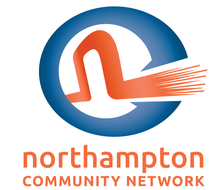One of us, Mark Hamill, owns a small business in Florence selling his internet services to clients over the web. Today he encountered an instance where Comcast’s slow upload speeds really slowed him down.
Mark pays for Comcast’s “up to” 250 megabits per seconds (mbps) download internet service. The upload speed is much slower than the download speed. In Mark’s case, the upload speed looks capped at around 11 mbps.

Yesterday, Mark ran the Xfinity Speed Test at around 5:45 PM. As you can see his upload speed is 11 mbps. But although he is paying for 250 mbps download speed, he was getting only 77.4 mbps, just 31% of his “up to” rate. This is probably because traffic on the internet picks up locally in Florence in the evening, and Comcast’s network doesn’t manage it very well. Which is why Comcast carefully qualifies its pricing tiers as “up to”. It won’t guarantee the advertised speed, but it will rate limit you so you do not exceed the contracted speed.
Mark has a client who needed her large forum backed up offsite. Users have uploaded over 24,000 images. When the forum’s content was placed in an archive, the total size of the archive was 16.38 gigabytes. But because Comcast rate limits his upload speed at about 11 mbps, uploading the file to Google Drive took over three hours.
Across the river in Leverett (a very rural area), users enjoy 1 gigabit per second (gbps) symmetrical fiber to the home (FTTH). Symmetrical access means that the network is architected so you can upload and download at the same rate. Leverett residents and businesses pay $73.89/month for the service. Mark pays $94.95 a month. With an upload rate on their system of 1 gbps, if he lived in Leverett he could have uploaded the file in 2 minutes and 8 seconds. This would be true, if, as is likely, Leverett’s network consistently delivers at or near its upload and download speed.
It doesn’t have to be this way. First, Comcast could invest in its network to deliver a more consistent upload and download rate for all its subscribers. If Northampton builds a municipal network, it could offer service like Leverett’s with 1 gbps upload and download FTTH. Mark’s customer could have had her backup hours earlier. The upload could have been 91 times faster plus Mark would have saved $21.06/month, assuming Northampton’s network was priced the same as Leverett’s.
But it’s not just small businesses that need quicker upload speeds. If you want to post lengthy videos to YouTube or Instagram from your home in Northampton be prepared to wait … and wait.
There is effectively no alternative for Mark or anyone else in Northampton because Comcast has an effective monopoly in Northampton on “high-speed” Internet. But his experience shows why Northampton residents and businesses need and deserve a high-speed FTTH municipal network.
